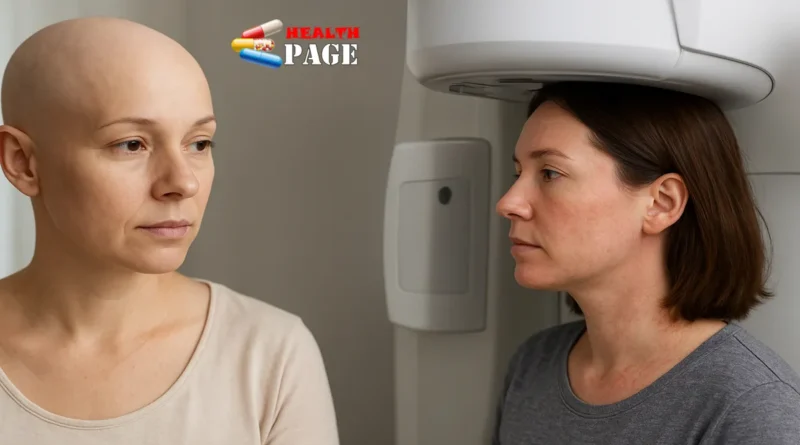5 Life-Changing Insights on Chemotherapy vs Radiotherapy for Cancer Patients
Facing a cancer diagnosis is overwhelming, and one of the first big questions that often comes up is: “chemotherapy vs radiotherapy — which is better for me?”
It’s a tough decision, and the truth is, there isn’t a one-size-fits-all answer. Both treatments can be effective, but in very different ways. Understanding how they work, their benefits, and what life looks like during each treatment can help patients and families feel more informed — and less alone in the process.
In this article, we’ll walk through five life-changing insights about chemotherapy and radiotherapy that every patient (and loved one) should know. Our goal is simple: to provide clarity, compassion, and practical knowledge you can use to feel more in control of your journey.
📌 Quick Comparison: Chemotherapy vs Radiotherapy
| Feature | Chemotherapy | Radiotherapy |
|---|---|---|
| How it works | Uses drugs to kill or slow the growth of cancer cells throughout the body | Uses targeted high-energy radiation to destroy cancer cells in specific areas |
| Best for | Cancers that have spread or are in multiple areas | Localized tumors that need precise treatment |
| Treatment method | Pills, injections, or IV infusions | External machine beams or internal implants (brachytherapy) |
| Side effects | Fatigue, nausea, hair loss, lowered immunity | Skin irritation, localized fatigue, possible tissue damage near the treated area |
| Duration | Weeks to months, multiple cycles | Usually daily sessions for several weeks |
| Goal | Treat systemic (whole-body) disease | Focus on one specific area of the body |
1. Chemotherapy vs Radiotherapy: Different Tools for Different Battles
One of the first things to understand is that chemotherapy and radiotherapy aren’t competitors — they’re tools. Doctors choose between them (or sometimes combine them) depending on the type, stage, and spread of the cancer.
- Chemotherapy acts like a “whole-body army.” It circulates through the bloodstream, hunting down cancer cells wherever they hide. That makes it powerful for cancers that have spread beyond one area.
- Radiotherapy, on the other hand, is more like a “laser sniper.” It zooms in on one specific tumor and attacks it directly with pinpointed radiation beams.
👉 Real-life example:
A patient with breast cancer that hasn’t spread might receive radiotherapy to shrink and control the tumor locally. Another patient with lymphoma that’s spread through the blood might be treated with chemotherapy, because the drugs can reach cancer cells throughout the body.
This shows us that it’s not about one being “better” than the other. It’s about the right tool for the right situation.
2. The Side Effects Are Different — and Knowing Them Helps You Prepare
One of the scariest parts of treatment is wondering, “How will I feel?” While both treatments come with side effects, the type of discomfort you might experience is very different.
💊 Chemotherapy common side effects:
- Fatigue (the most common one!)
- Nausea or vomiting
- Hair loss
- Increased risk of infections due to lower immunity
- Changes in appetite or taste
☢️ Radiotherapy common side effects:
- Skin irritation (like a sunburn) near the treatment site
- Tiredness that builds up over time
- Stiffness or soreness in the treated area
- In rare cases, nearby healthy tissues may be affected
👉 The key insight: Being aware helps you plan ahead. For example, if you’re starting chemotherapy, you might stock up on easy-to-digest meals and line up support for days when your energy is low. If you’re doing radiotherapy, you might use gentle skin-care products and plan rest breaks throughout your week.
3. Treatment Goals: Cure, Control, or Comfort
Another life-changing realization is that chemotherapy vs radiotherapy is not always about “cure.” These treatments can serve different goals depending on the situation.
- Cure: For some patients, treatment can completely eliminate cancer. This is often the goal with localized cancers caught early.
- Control: Sometimes treatment is used to shrink or stop cancer from spreading, even if it can’t be fully removed.
- Comfort (Palliative Care): In advanced stages, chemo or radiotherapy might be used to ease symptoms, like reducing pain from a tumor pressing on organs.
👉 Why this matters: Understanding the goal of treatment helps patients focus not just on survival, but also on quality of life.
4. Combining Treatments Can Be More Effective
It’s not always “chemotherapy vs radiotherapy.” In many cases, it’s chemotherapy AND radiotherapy.
Doctors often use both together — this is called chemoradiotherapy — to attack cancer more aggressively.
Benefits of combining treatments:
- Radiotherapy kills cancer in one area, while chemotherapy prevents it from spreading.
- Using both increases the chance of shrinking a tumor enough for surgery.
- Some chemotherapy drugs actually make cancer cells more sensitive to radiation, boosting effectiveness.
👉 Example: Many head and neck cancers are treated with both chemo and radiotherapy because this combination helps preserve organs while still fighting the disease effectively.
5. The Emotional Journey Is Just as Important as the Physical One
When people talk about chemotherapy vs radiotherapy, the focus is often on medical facts — but the emotional impact can’t be ignored.
Patients often describe treatment as a rollercoaster of emotions: hope, fear, fatigue, and resilience. Support systems — family, friends, doctors, counselors, or even online communities — make a huge difference.
Ways to cope emotionally:
- Stay connected: Talking with others going through similar journeys can ease the sense of isolation.
- Celebrate small wins: Finishing a cycle of treatment or making it through a tough week is worth recognizing.
- Mind-body practices: Gentle yoga, meditation, or journaling can reduce stress.
- Lean on professionals: Psychologists and oncology social workers are trained to support patients through these challenges.
👉 Remember: Healing is not just physical. Taking care of your mind and emotions is equally important.
🌱 Final Thoughts: Choosing What’s Right for You
When it comes to chemotherapy vs radiotherapy, the truth is simple: neither is “better” across the board. Each has unique strengths, challenges, and purposes. The best treatment depends on your type of cancer, stage, overall health, and personal goals.
Here’s what you can take away:
- Chemo works throughout the body; radiotherapy targets one spot.
- Side effects are different, but manageable with preparation.
- Treatment goals can vary from cure to comfort.
- Sometimes, combining both is the most effective strategy.
- Emotional support is a vital part of healing.
Above all, remember: you are not alone. Millions of cancer survivors have walked this path before you, and with the right knowledge and support, you can face treatment with strength and hope.


